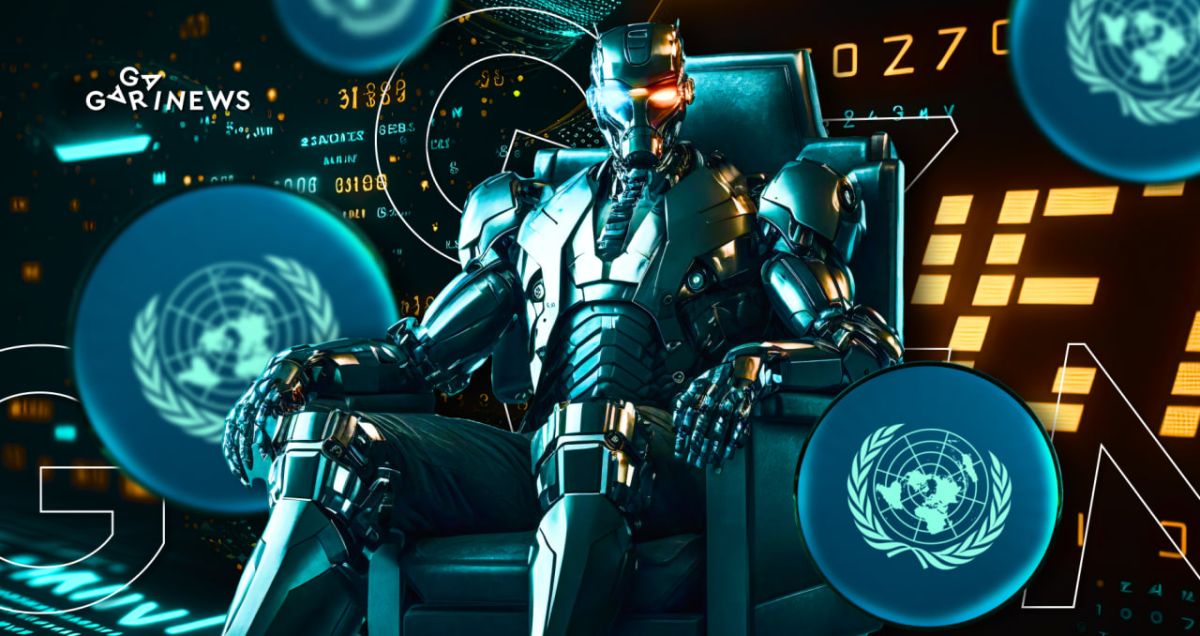At the UN Table: AI’s Bright Horizons vs. Looming Threats

In mid-July, for the first time, world leaders assembled at the UN Security Council to grapple with the risks tied to widespread AI adoption. The discussion bore fruit in the form of a three-year action plan, with the United Kingdom poised to potentially take the lead in global regulation.
On this page
The United Kingdom, as the presiding nation in this international body, called the Security Council meeting. About fifteen participants debated the far-reaching changes that could stem from the rapid spread of AI. These changes are expected to affect nearly every aspect of human life, from medical innovations, productivity improvements, an education system revolution, climate change adaptation, to overcoming corrupt officials and fostering world peace. While all these are true, it's fair to say that world leaders aren't necessarily brimming with optimism.
The UK's Proactive Stance
James Cleverly, a UK representative, also believes that AI accelerates and magnifies the dissemination of misinformation and deepfakes, posing a threat to democratic processes and global stability. He warned that despots and terrorists could exploit AI to create all kinds of weapons of mass destruction. As such, the Brits maintain that AI governance must occur on a global scale. They suggest adhering to four primary principles:
- Transparency (AI should serve freedom and democracy exclusively);
- Accountability (AI should be consistent with the rule of law and human rights);
- Safety and predictability (AI should protect intellectual property rights, respect citizens' privacy, and abide by the principles of national security);
- Resilience (Protection of vital systems).
The United Kingdom aims to host the inaugural global summit on AI security this autumn. It will include G7 nations, major technology companies, and scientists who will discuss how to continuously monitor and evaluate the most significant risks associated with this technology.
But why is the United Kingdom spearheading this, you may ask? The country is a world leader in AI, ranking third after the US and China. The AI industry contributes £3.7 billion to the British economy annually and employs 50,000 people. Additionally, all the major AI players, such as OpenAI, Anthropic, Google Deepmind, Palantir, and others, have already established their headquarters in London.
The American Perspective
Ambassador Jeffrey DeLaurentis, the acting Deputy Representative to the United Nations, expressed the viewpoint of the United States. He argued for the need to improve coordination within the Security Council, encompassing member states, technology powerhouses, and community representatives.
Such efforts have already taken shape in the U.S. Earlier in May, President Biden had discussions with leading AI corporations, and the National Institute of Standards and Technology initiated a specific online platform. This platform equips the business sector with diverse guidelines for managing risks associated with artificial intelligence systems. Additionally, there's ongoing work at the White House on drafting an AI rights bill, aimed to consolidate the principles of designing, utilizing, and deploying automated systems.
No Member State should use AI to censor, constrain, repress or disempower people.Military use of AI can and should also be ethical, responsible, and enhance international security.
DeLaurentis stressed
Furthermore, the U.S. has already issued the Political Declaration on Responsible Military Use of AI and Autonomy. This document encapsulates the principles of AI development and application in the military sphere, adhering to the standards of international law. A focal point is the unambiguous accountability of AI to military personnel of the homo sapiens species.
The Next Steps for the Security Council
UN Secretary-General António Guterres demonstrated an insightful understanding of the challenges related to the modern technology implementation. He mentioned social networks, initially conceived as tools to solidify connections between individuals from disparate countries and continents. However, they have evolved into platforms where propaganda proliferates and anger and violence are stoked. A similar pattern is emerging with AI. Furthermore, Guterres pointed out the lack of AI expertise among officials at all levels (how then could they regulate it? – author's note). Authorities need to adapt to the new technological realities at both national and global scales.
Malfunctioning AI systems are another huge area of concern. And the interaction between AI and nuclear weapons, biotechnology, neurotechnology, and robotics, is deeply alarming.
he observed
Subsequently, delegates from 15 countries involved have formulated a roadmap for the forthcoming years. The plan consists of:
- The creation of a new UN-backed entity, modeled after institutions like the International Atomic Energy Agency and the International Civil Aviation Organization, aimed at overseeing AI.
- By the close of 2024, the UN should host a conference where the potential routes to global AI governance will be discussed.
- Commencing work on an analytical piece named “A New Program for the World”, which will compile guidelines for AI management applicable to member states.
- A commitment to conclude, by 2026, talks on a global Treaty on the Prohibition of Fully Autonomous Weapons that function without human control.
We must work together for AI that bridges social, digital, and economic divides, not one that pushes us further apart. I urge you to join forces and build trust for peace and security.
the UN Secretary-General concluded
The content on The Coinomist is for informational purposes only and should not be interpreted as financial advice. While we strive to provide accurate and up-to-date information, we do not guarantee the accuracy, completeness, or reliability of any content. Neither we accept liability for any errors or omissions in the information provided or for any financial losses incurred as a result of relying on this information. Actions based on this content are at your own risk. Always do your own research and consult a professional. See our Terms, Privacy Policy, and Disclaimers for more details.


























